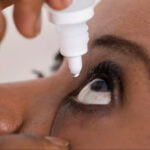
Treatment of Ocular Allergies
Ocular allergies can make life difficult. Your eyes can become itchy, watery, red, and swollen. When you’re suffering from ocular allergies, you don’t feel well or look your best. Fortunately, there are ways to treat the symptoms, so you can return to your normal daily activities.
What are Ocular Allergies ?
When your eye reacts to an allergen, it’s called allergic conjunctivitis. When your eyes contact an allergen, your body produces histamines. As a result, your eyes can become red, irritated, itchy, and watery.
Common allergens include pet dander, dust mites, smoke, perfumes, and cosmetics. If ocular allergies are not treated, the symptoms can become severe. Severe allergies may cause burning and sensitivity to light.
What Causes Ocular Allergies ?
What are the Symptoms of Ocular Allergies ?
The most common symptoms of ocular allergies include :
- Redness in the eyes.
- Swelling.
- Itchiness.
- Burning.
- Watery eyes.
- Sensitivity to light.
Ocular allergies may be accompanied by nasal allergy symptoms, including runny nose, itchy nose, sneezing, and coughing.
How are Ocular Allergies Diagnosed ?
Your ophthalmologist can determine if you’re suffering from ocular allergies. During an examination, your doctor can rule out other conditions, including eye infections. Tell your ophthalmologist about your complete medical history. Be sure to let your doctor know if your family suffers from ocular allergies.
You may need to undergo additional tests to conclude if you have ocular allergies. A white blood cell test can determine if you’re suffering from an allergic reaction. To perform the test, your doctor will gently swab your eye and send it to a lab for analysis.
How are Ocular Allergies Treated ?
The best way to treat ocular allergies is to avoid contact with allergens. Your ophthalmologist can perform tests to identify the specific allergens you need to avoid.
If you are allergic to pollen, limit your time outdoors when pollen counts are high. Sunglasses or eyeglasses can prevent the allergens from contacting your eyes. While you’re indoors, keep your windows closed and turn on your air conditioning. Always remember to clean the filters regularly.
If you are allergic to mold, lower the humidity in your house. The humidity level should not exceed 50 percent. Regularly clean your bathrooms, basement, and kitchen with bleach.
If you are allergic to dust, use allergen-reducing bedding. Wash your bedding in hot water. When cleaning, use a wet mop to trap the allergens and prevent them from becoming airborne.
When environmental control isn’t enough, medications can relieve ocular allergy symptoms. Artificial tears can wash away allergens and add moisture to your eyes. You can use eye drops as needed when suffering from allergies.
You can also use eye drops that contain antihistamines. These medications can relieve itchiness, redness, and burning. Corticosteroid eye drops treat severe ocular allergies by reducing inflammation, redness, and itching.
If you have severe ocular allergies, you may also benefit from immunotherapy shots. The injections contain a tiny amount of the allergen, so you can gradually build immunity.
Your ophthalmologist can help your find the best treatment. Always follow the instructions provided by your doctor.